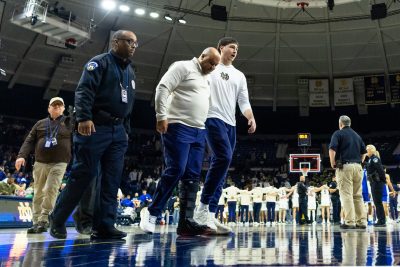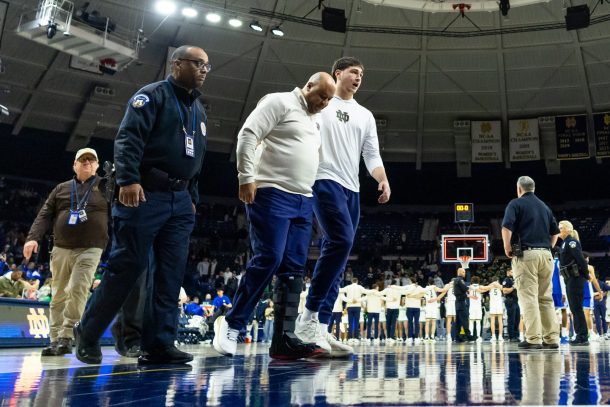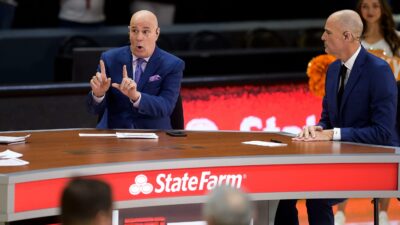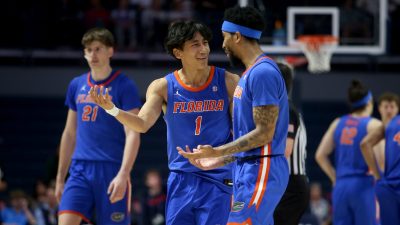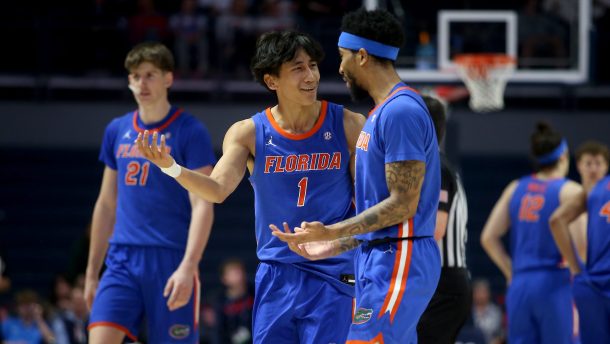The NCAA is adopting 2 key changes to its NIL guidelines.
According to a report from ESPN’s Dan Murphy, the NCAA’s Division I Board of Directors adopted a pair of rule changes on Thursday aimed at narrowing the scope of what schools can offer players under the guise of name, image, and likeness. Schools will reportedly no longer be able to guarantee a player money from a third-party NIL deal. Additionally, deals from collectives and boosters must include language specifying a “direct activation.”
The first change comes in response to agreements between schools and players where schools committed to cover the full cost of a deal if a collective didn’t pay a student-athlete for whatever reason. For schools that made those specific agreements prior to the House settlement taking effect on July 1, the guaranteed money will now count against the 22% cap on revenue sharing.
The second change aims to prevent collectives/boosters from signing players to NIL deals that pay for the athlete’s rights without a specific endorsement outlined. The language of those deals, according to Murphy, made it difficult for the NIL clearinghouse to assess fair-market value. Moving forward, deals must stipulate payment for specific conditions being met.
Thursday’s rule changes from the NCAA come just days after U.S. Senators introduced a bill titled the SAFE Act, legislation that aims to “codify athletes’ rights and protections in law, expand revenue for all schools, support women’s and Olympic sports and bring much-needed stability to the college sports system.”
NCAA officials are also closely monitoring the situation at Virginia Tech. After the Hokies fired their head coach last month, several players opted to redshirt with the intention of entering the transfer portal. In response, one player says the Hokies have threatened to terminate rev-share payments and scholarship benefits for players. That player then retained prominent sports attorney Darren Heitner to challenge the school’s position.
Derek Peterson does a bit of everything, not unlike Taysom Hill. He has covered Oklahoma, Nebraska, the Pac-12, and now delivers CFB-wide content.


